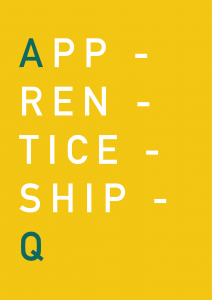DEUSTO Engineering Faculty: Dual programmes involve and integrate professors in the companies

By Aitor Goti (Deusto Engineering Faculty), Mikel Garcia, Josu Galarza (Mondragon Unibertsitatea)
Professors work closer with companies. Dual programmes involve and integrate professors in the companies.
The students taking part in these programmes are more motivated. Note the satisfaction results achieved in the intensive practicum programme.
The Engineering faculty of Deusto University offers 3 kinds of apprenticeships within the EQFs 6 to 7. The University offers short internships (3 weeks) (‘Modelo retos’ ), 3 month internships, and dual programs (2 years for Undergraduate deg. and 1 year for Master).
In the intensive practicum (‘Modelo retos’ ) (3 weeks) the company defines a challenge and a group of students find a solution in a part time model.
In undergraduate degrees and dual programmes, the learning results are those, which are already defined in the map of competences of the degree. The last semester of the programme students will be working on the Undergraduate Final Year Project in a company.
In Master dual programmes the competences are defined between the company and the university.
A legal cooperation agreement exists between the company, the student and Deusto University.
Company researchers participate in talks and courses at the Deusto University.
Companies take part in accreditation committees of different degrees.
An Evaluation Committee visits the institution and assesses all matters related to accreditation. The external agency could withdraw the authorization and accreditation of the dual program.
In dual programs, new company tutors take part in an initial 4 day training session offered by the university (24h)
Companies apply in the Deusto on line platform offering the apprenticeship for the profile needed.
The company HR department selects the candidates with the process adopted.
There are differences between apprenticeships.
In the intensive practicum (3 weeks) (‘Modelo retos’ ) the company defines the learning plan and the competences.
In dual programmes, the competences are defined in the map of competences of the degree.
The company tutor coordinates and assists the apprentice developing his learning plan every 2 weeks.
Company HR department coordinates the apprenticeship programme with the university.
The apprentice developments (technical and transversal competences) are evaluated by their tutor every 2 weeks.
The apprenticeship management platform is under construction.
University tutor defines and monitors the learning process and assesses the student.
The apprenticeships are evaluated by learning results and levels.
Deusto uses indicators to determine the impact such as rate of employment, company’s fidelity in the programme, satisfaction with the programme.
Dual programmes involve and integrate professors in the companies.
The students taking part in these programmes are more motivated. Note the satisfaction results achieved in the intensive practicum programme.
Spanish work regulation is very rigid and does not take into account university apprenticeship programmes.
The implementation of apprenticeship programmes is complex (university-academic regulation, work regulation, companies, students, society).
University professors work closer with companies.
High motivation of students taking part in the intensive practicum programme (‘Modelo Retos’).
Deusto should have started dual programmes much earlier.
These programmes will be implemented in Professional dual Master.



